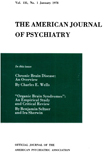INTELLIGENCE OF NORMAL AND EPILEPTIC TWINS
Abstract
Intelligence tests were carried out on 93 twins or 186 co-twins. Of these 63 twins were without history of epilepsy or brain injury and 30 had a history of seizures. The average I. Q. for the 149 non-epileptic persons was 108. For the 27 persons with epilepsy but without definite evidence of brain injury, 96; and for the 10 epileptics with brain injury, 77.
Among monozygotic twins the difference between the average high and low scores of 47 non-epileptic twins was six points. Among seven monozygotic twins in which both co-twins had chronic epilepsy, the spread was seven points. Among six pairs in which only one co-twin had epilepsy, the spread was five points and among the eight twins in which only one had chronic epilepsy and also evidence of brain injury, the spread was 30 points or six times the spread in normal twins. Among dizygotic twins the average spread between high and low scores was 10 points for 16 non-epileptic twins and 23 points for seven twins in which one had chronic seizures. In only two of these twins had the epileptic co-twin suffered brain injury.
These data emphasize that with a good mental inheritance a patient is able to maintain a normal intelligence in spite of epilepsy, but that acquired gross pathology of the brain has a serious effect on mentality. In other words, contrary to common medical opinion, a person with a normal mentality who develops idiopathic (genetic) epilepsy is much less likely to become mentally deteriorated than a person who develops symptomatic (acquired) epilepsy.
Access content
To read the fulltext, please use one of the options below to sign in or purchase access.- Personal login
- Institutional Login
- Sign in via OpenAthens
- Register for access
-
Please login/register if you wish to pair your device and check access availability.
Not a subscriber?
PsychiatryOnline subscription options offer access to the DSM-5 library, books, journals, CME, and patient resources. This all-in-one virtual library provides psychiatrists and mental health professionals with key resources for diagnosis, treatment, research, and professional development.
Need more help? PsychiatryOnline Customer Service may be reached by emailing [email protected] or by calling 800-368-5777 (in the U.S.) or 703-907-7322 (outside the U.S.).



